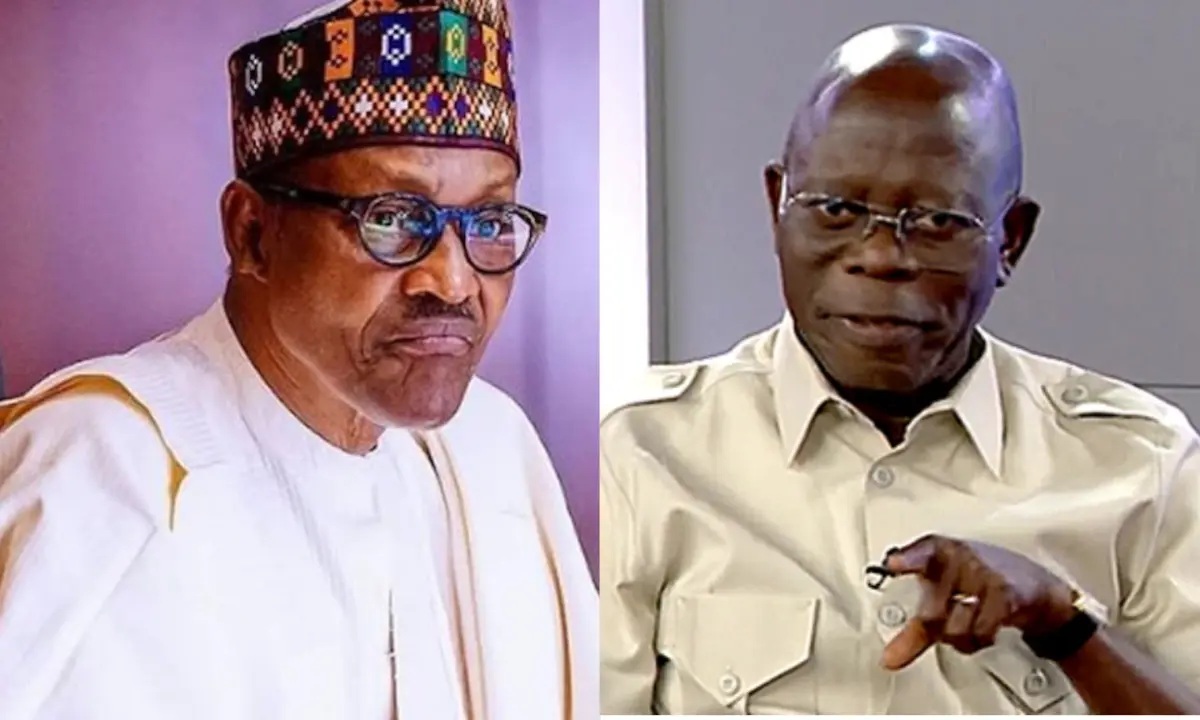In a sharp and sobering critique of Nigeria’s recent economic history, Senator Adams Oshiomhole, former governor of Edo State and current representative of Edo North, has squarely blamed the collapse of the naira on what he called “reckless money printing” by the Central Bank of Nigeria (CBN) under former President Muhammadu Buhari’s administration.
Speaking at an interactive session organized by the Progressives Governors Forum in Benin City on Saturday, Oshiomhole condemned the excessive use of a controversial monetary policy tool known as Ways and Means.
This policy allows the federal government to obtain short-term loans from the central bank to cover budget shortfalls or delayed revenues.
But according to Oshiomhole, under the previous administration, the provision became a gateway for unchecked borrowing and mass currency printing, with catastrophic consequences.
“We are coming from a country that was almost like Zimbabwe or Idi Amin’s Uganda,” Oshiomhole declared, referencing infamous examples of hyperinflation.
“In Uganda, when the central bank governor warned that printing more money would devalue the currency, Idi Amin told him to go ahead anyway.
“That’s what happened here.”
According to records from the Nigerian Senate, more than ₦31 trillion (approximately $22 billion at today’s rates) was created under the Ways and Means program.
Oshiomhole claims this amount was neither backed by reserves nor any actual economic productivity.
“When the government wants to deceive people, they use jargon,” he said.
“They called it Ways and Means. But in plain terms, it was just printing money to spend, with nothing to support it.”
The economic fallout from that policy has been severe.
The Nigerian naira, once relatively stable, has suffered a dramatic loss of value, triggering runaway inflation, skyrocketing food prices, and surging fuel costs.
In June 2023, the Central Bank floated the naira, removing artificial controls in hopes of stabilizing the currency.
But the underlying structural problems persisted, and the naira plunged further, leading to public outcry and rising hardship.
Nigeria, Africa’s most populous country and largest economy, has long struggled with an overdependence on oil exports, widespread corruption, and fiscal mismanagement.
But the revelations around Ways and Means have reignited national debates on transparency, central bank independence, and the cost of political populism.
“To understand the root cause of the present cost of living crisis and our chaotic exchange rate, you must trace it to the massive injection of unearned money through this program,” Oshiomhole emphasized.
“The previous government created this problem, and now it’s President Bola Tinubu’s burden to clean it up.”
The senator’s comments come amid growing scrutiny of Nigeria’s public debt, which ballooned during Buhari’s tenure.
As of early 2024, Nigeria’s total debt stock stood at over ₦97 trillion ($67 billion), with the federal government now allocating a significant portion of its revenue just to service interest payments.
“Under the past government,” Oshiomhole said bluntly, “we borrowed like fish drink water.
“And now, the sovereignty of our country is at risk if we don’t pay back.”
President Tinubu’s administration, which took office in 2023, has promised to reset the country’s economic direction.
One of its early moves was to eliminate the Ways and Means facility and launch audits into past spending.
In 2024, the Senate established an ad-hoc committee.
This was to investigate both the Ways and Means facility and the Central Bank’s controversial Anchor Borrowers Programme, a farming stimulus initiative plagued by poor results and allegations of corruption.
Analysts say that while ending the printing of money is a necessary step, restoring confidence in the naira and fixing Nigeria’s structural weaknesses will require more than monetary tightening.
Transparency, institutional reform, and economic diversification remain urgent imperatives.
For many Nigerians, however, the damage has already been done.
Inflation has eroded savings, small businesses struggle with imported costs, and the average citizen bears the weight of past policies they neither voted for nor understood.
Still, Oshiomhole’s candor may mark a turning point.
By openly naming the causes of Nigeria’s current pain, the political class may finally be forced to confront hard truths and make equally hard choices.







